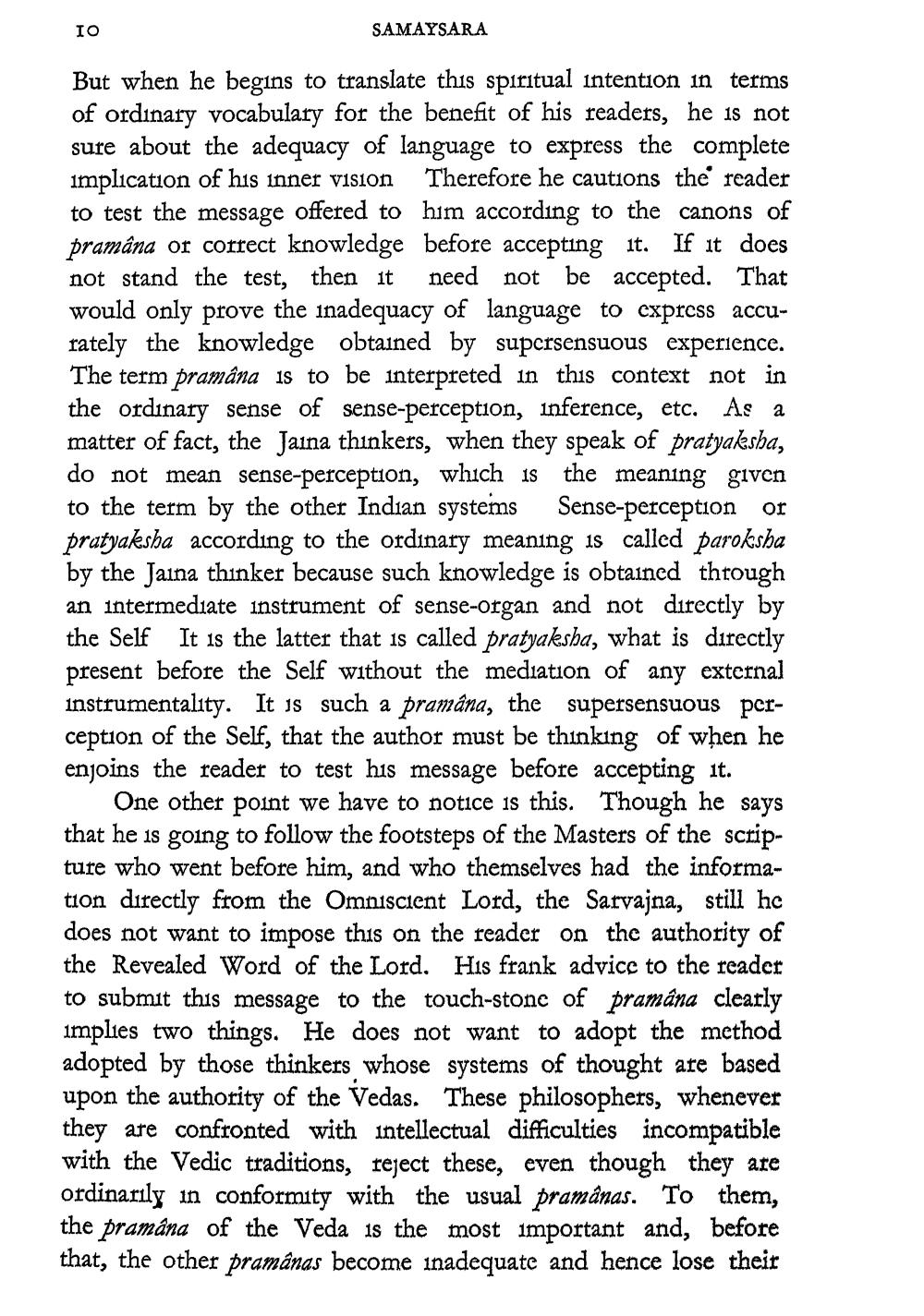________________
IO
SAMAYSARA
But when he begins to translate this spiritual intention in terms of ordinary vocabulary for the benefit of his readers, he is not sure about the adequacy of language to express the complete implication of his inner vision Therefore he cautions the reader to test the message offered to him according to the canons of pramâna or correct knowledge before accepting it. If it does not stand the test, then it need not be accepted. That would only prove the inadequacy of language to express accurately the knowledge obtained by supersensuous experience. The term pramâna is to be interpreted in this context not in the ordinary sense of sense-perception, inference, etc. As a matter of fact, the Jaina thinkers, when they speak of pratyaksha, do not mean sense-perception, which is the meaning given to the term by the other Indian systeins Sense-perception or pratyaksha according to the ordinary meaning is called paroksha by the Jaina thinker because such knowledge is obtained through an intermediate instrument of sense-organ and not directly by the Self It is the latter that is called pratyaksha, what is directly present before the Self without the mediation of any external instrumentality. It is such a pramâna, the supersensuous perception of the Self, that the author must be thinking of when he enjoins the reader to test his message before accepting it.
One other point we have to notice is this. Though he says that he is going to follow the footsteps of the Masters of the scripture who went before him, and who themselves had the information directly from the Omniscient Lord, the Sarvajna, still he does not want to impose this on the reader on the authority of the Revealed Word of the Lord. His frank advice to the reader to submit this message to the touch-stone of pramâna clearly implies two things. He does not want to adopt the method adopted by those thinkers whose systems of thought are based upon the authority of the Vedas. These philosophers, whenever they are confronted with intellectual difficulties incompatible with the Vedic traditions, reject these, even though they are ordinarily in conformity with the usual pramånas. To them, the pramâna of the Veda is the most important and, before that, the other pramânas become inadequate and hence lose their




